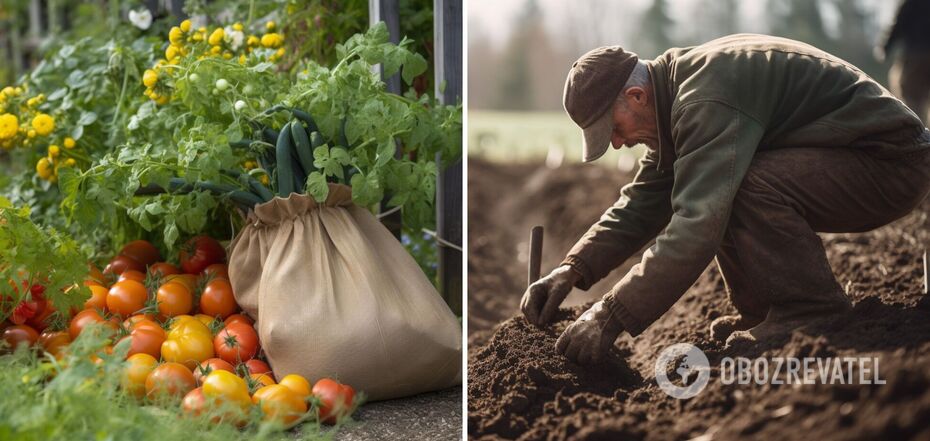Life
Everything will grow much faster: how to prepare the soil before planting vegetables
The quality of the soil is one of the decisive factors for a good harvest. That's why gardeners are always looking for ways to improve it.
Gardening Know-How tells us what factors to look for when it comes to improving the quality of the soil in the vegetable garden. And how to maximize it.
What to look for when preparing your soil
There are several clear criteria you can use to determine how good the soil is. Here they are.
Quality of tillage
Well-tilled soil should contain lumps of varying sizes and have quite a few grooves between them, through which water and air will flow freely deep into the soil. Soil with good tillage has a structure that supports healthy root growth.
Water-holding capacity.
It depends in part on the type of soil, but there are factors that can affect it one way or the other. Ideally, the soil should be well-drained but still hold enough water to support healthy plant growth.
Nutrient Retention Capacity
Quality soil can hold minerals that plants use as nutrients well. Clay soils usually do better and can be quite fertile. But they will need a lot of work to overcome their tendency to become compacted or lumpy.
Percentage of organic matter.
This is the index that indicates the biological activity of the soil. It also affects the ability to retain water and nutrients, as well as yields.
How to prepare the soil
Whatever the quality of the soil in your vegetable garden, try not to make it worse by your actions. For example, don't walk in beds, leave soil uncovered in the rain, or work with soil that is too wet.
In soils with low organic matter content, overtreatment can lead to a hard crust on the surface. Exposure to bad weather on bare soil can also degrade soil quality, so keep beds covered between crops, such as tarps, mulch, or cover crops.
And to improve soil quality, you should use different additives that could improve its physical condition. These include compost or manure. They increase the soil's ability to hold water and improve drainage for clay soils that are prone to waterlogging.
It is usually easier to maintain soil that is high in organic matter. Compost provides long-term benefits by increasing the soil's nutrient content and promoting soil biological activity.
Other examples of soil amendments are gypsum or peat. But they only benefit certain types of soil or certain types of plants, so you need to determine what kind of soil you have in your vegetable garden and what you intend to grow on it before applying them.
Planting cover crops will also help protect bare soil and enrich beds with organic matter. And rod-rooted crops like radish, alfalfa, and chicory can help form channels that allow water to pass through compacted or poorly drained soils.
Previously OBOZREVATEL told what plants can suck all the nutrients out of the soil.
Subscribe to OBOZREVATEL channels in Telegram and Viber to keep up with the latest developments.



























